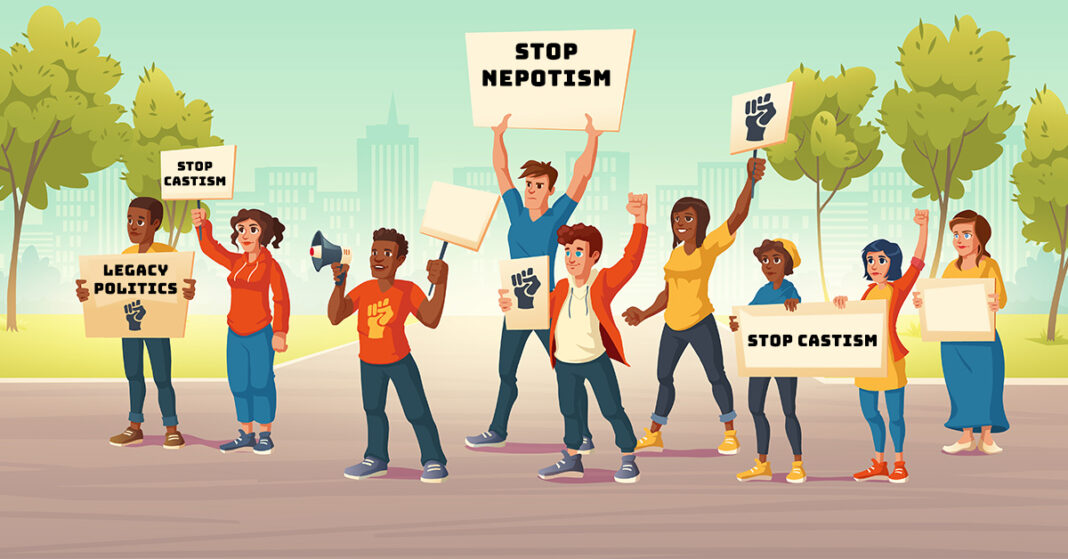Throughout history, there have been many examples of families with long-standing legacies in politics. From the Kennedys in the United States to the Nehrus in India, many families have produced multiple generations of politicians who have held significant power and influence. While these legacies can have positive aspects, such as a shared commitment to public service or a deep understanding of the political process, they can also pose challenges and raise questions about the concentration of power and the exclusion of other voices.
One of the most significant concerns with family legacies in politics is the potential for nepotism. When family members are consistently elected to political positions, it can create an environment where political power is concentrated within a small group of individuals who may prioritize their own interests over those of the broader population. This can lead to a lack of diversity in perspectives and experiences within the political system, and may even result in corruption or other unethical practices.
Additionally, family legacies in politics can create a sense of entitlement among certain individuals who feel that political power is their birthright rather than something that must be earned through hard work and dedication. This can lead to complacency and a lack of effort on the part of individuals who feel that they are destined to hold political office, rather than recognizing the need to actively engage with voters and work to earn their support.
Despite these concerns, there are also some potential benefits to family legacies in politics. For example, family members who have grown up in a political environment may have a deep understanding of the political process and the issues facing their constituents. They may also be more likely to share certain values and priorities, which can create a sense of continuity and consistency within the political system.
Moreover, some family legacies in politics have been associated with significant social and political change. The Kennedys, for example, were instrumental in advancing civil rights and other progressive causes in the United States during the 1960s, while the Nehrus played a key role in India’s fight for independence from British colonial rule. In some cases, these legacies may reflect a deep commitment to public service and a desire to use political power to effect positive change.
However, it’s important to recognize that not all family legacies in politics are the same. Some families may genuinely prioritize public service and use their political power to advance the interests of their constituents, while others may be more focused on personal gain or maintaining their own grip on power. Additionally, the context in which these legacies occur can also have a significant impact on their implications. In some countries, for example, political dynasties may be more common due to factors such as limited access to education or resources, while in others they may be viewed as a sign of corruption or unfair advantage.
There are also various measures that can be taken to address the potential challenges associated with family legacies in politics. For example, many countries have implemented term limits or other measures to prevent politicians from holding office indefinitely. This can help to ensure that new voices and perspectives are able to enter the political system and that political power is not concentrated in the hands of a small group of individuals.
Moreover, efforts can be made to promote greater diversity within the political system. This can involve measures such as encouraging more women and members of underrepresented groups to run for office, providing greater support and resources for political newcomers, and promoting transparency and accountability within the political process.
In conclusion, family legacies in politics can have both positive and negative implications. While they may reflect a commitment to public service and a deep understanding of the political process, they can also raise concerns about nepotism and the concentration of power. Ultimately, it’s up to voters and the individuals involved in the political process to determine when it’s time for a change and to promote more diverse and representative political systems. By implementing measures to prevent political dynasties from perpetuating indefinitely and promoting greater diversity within the political system, we can help to ensure that political power is more evenly distributed and that the voices and perspectives of all members of society are represented.
It’s also important to note that family legacies in politics are not the only form of political dynasties. Other forms include financial and business dynasties, where wealth and power are passed down through generations, and educational dynasties, where individuals from certain backgrounds are more likely to have access to elite education and the resources needed to succeed in politics. Addressing these broader forms of dynasties will require a more comprehensive and systemic approach that addresses underlying inequalities and barriers to political participation.
Overall, the issue of family legacies in politics is a complex and multifaceted one that requires careful consideration and attention. While there may be some benefits to having multiple family members involved in politics, there are also significant risks and concerns that must be addressed. By promoting greater diversity and accountability within the political system, we can help to ensure that political power is more evenly distributed and that the voices and perspectives of all members of society are represented.









